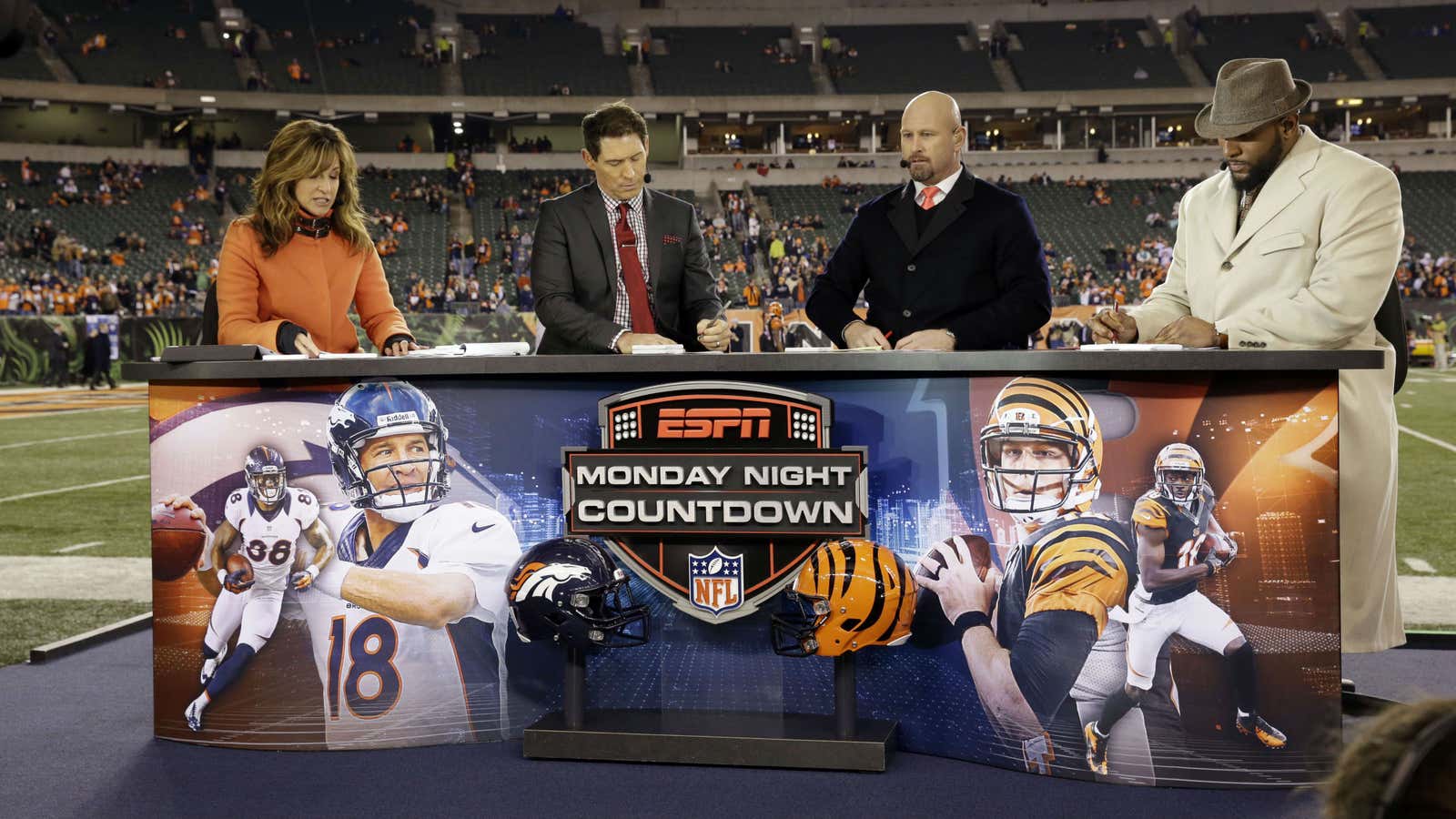Might ESPN—the most lucrative entity in sports media, and a longtime stalwart of the traditional pay TV bundle—be offered directly to consumers, without needing a cable subscription? Bob Iger, the CEO of Disney (which owns ESPN), says yes, but not within the next five years.
“If we end up seeing more erosion in the so-called multichannel bundle,” he told CNBC’s Squawk Box, “quality will win out.” The erosion that he refers to is, of course, the accelerating decline of paying TV subscribers to cable companies like Comcast and Time Warner Cable.
Already, the almighty cable bundle—thought to be virtually indestructible only a decade ago—is forming some major cracks. Premium pay TV networks HBO and Showtime now provide their own online platforms, outside the cable bundle. Dish Network’s Sling TV offers a bundle of cable channels—including ESPN—online for $20 a month.
But if ESPN were to ever go the way of HBO or Showtime, it would likely form the largest crack yet—a chasm, if you will. ESPN is by far the most expensive cable channel, commanding more than $6 from cable providers for every one of its subscribers (of which ESPN has about 100 million). For a sense of comparison, the next highest fee per subscriber charged by a cable channel is TNT, at $1.44.
“While the business model may face challenges over the next few years, long term for ESPN…they’ll be fine,” Iger said. “They have pricing leverage, too.” To be sure, Iger’s comments are partially meant to reassure investors that ESPN will be able to weather the cord-cutting storm. It’s a lucrative business inside or outside the cable bundle, and there will always be demand for it.
But it might not be that easy. As Clay Travis writes for Fox Sports (an ESPN competitor), going direct-to-consumer is a tricky business:
But here’s where things get even more dicey for ESPN, the Wall Street Journal reported that ESPN can’t begin to offer a direct to consumer product without giving up the contractual right that it be carried in virtually every cable and satellite subscription offering. (Seriously, go find a cable and satellite package without ESPN, it’s almost impossible. ESPN is also zealously protecting this right, recently suing Verizon over cable bundles). That means that if ESPN starts chasing direct to consumer cord cutters with an over the top offering it risks losing the free riders it already has on cable and satellite.
And what if the major American sports leagues decide to go direct to consumers themselves? The NFL is experimenting with such a future: This upcoming season, it will broadcast a game online, for free, for the first time ever. While the NFL has deals with TV networks through 2022, it isn’t that hard to envision a future when it, along with the NBA (National Basketball Association) and Major League Baseball, allows sports fans to watch games online without having to subscribe to a channel like ESPN (this would also be bad news for American broadcast channels CBS, Fox, and NBC).
That said, not all of ESPN’s value is tied to airing live games. Much of what makes ESPN the “worldwide leader in sports” is its coverage between games: the flagship show SportsCenter, endless commentary and analysis, fantasy sports advice, documentaries, the NFL and NBA drafts, and so on.
If cord-cutting continues along its current path, all of that content could someday be available online, no expensive cable subscription necessary. Check back in five years to see if Iger was truly serious about blowing up the bundle.
